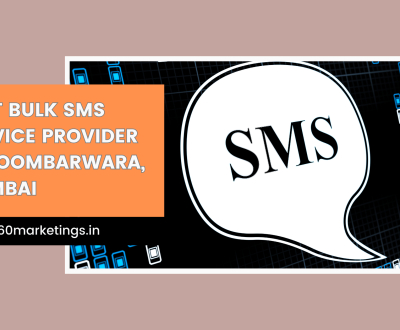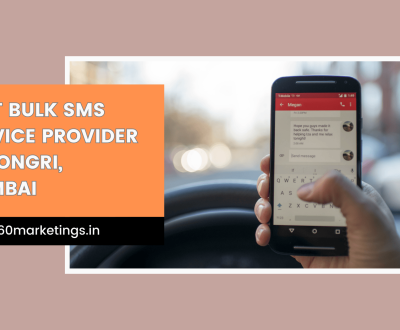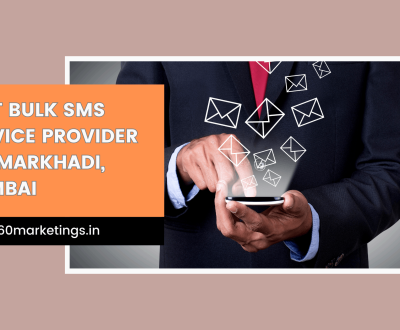Strategic Promotion in Digital Marketing: Unleashing Growth Tactics
- January 8, 2024
- Digital Marketing
Introduction
In the digital age, mastering the art of strategic promotion in digital marketing is paramount for businesses seeking to thrive online. Digital Marketing encompasses a spectrum of online tactics aimed at promoting products or services, driving brand awareness, and engaging with a targeted audience. From search engine optimization (SEO) to social media marketing, the realm of digital marketing is vast and dynamic. As businesses navigate this digital landscape, understanding the trends, advantages, and future possibilities is crucial to formulating effective promotional strategies.

Phase of Digital Marketing
In the digital age, mastering the art of strategic promotion in digital marketing is paramount for businesses seeking to thrive online. Digital Marketing encompasses a spectrum of online tactics aimed at promoting products or services, driving brand awareness, and engaging with a targeted audience. From search engine optimization (SEO) to social media marketing, the realm of digital marketing is vast and dynamic. As businesses navigate this digital landscape, understanding the trends, advantages, and future possibilities is crucial to formulating effective promotional strategies.
Digital marketing has become an indispensable tool for businesses aiming to achieve exponential growth in the competitive online landscape. Leveraging a strategic approach can unleash powerful growth tactics that propel your brand to new heights. In this blog let’s explore key strategies and techniques for maximizing the potential of digital marketing.
1. Search Engine Optimization (SEO):
- Optimize website content with relevant keywords to enhance search engine rankings.
- Create high-quality, shareable content that attracts backlinks and boosts organic visibility.
- Utilize local SEO strategies to target regional audiences and improve local search rankings.

2. Content Marketing Excellence:
- Develop a content strategy aligned with your target audience’s interests and needs.
- Leverage various content formats such as blog posts, videos, infographics, and ebooks.
- Focus on storytelling to humanize your brand and connect emotionally with your audience.
3. Social Media Engagement:
- Identify and prioritize social media platforms relevant to your target demographic.
- Develop a consistent posting schedule to maintain an active and engaged online presence.
- Utilize paid social advertising to expand reach and target specific audience segments.
4. Email Marketing Strategies:
- Build and segment an email list to deliver personalized content tailored to audience preferences.
- Implement automation for email campaigns, including welcome series and drip sequences.
- A/B test subject lines, content, and calls-to-action to optimize email performance.
5. Paid Advertising Campaigns:
- Utilize pay-per-click (PPC) advertising on platforms like Google Ads for targeted visibility.
- Design compelling ad creatives with persuasive copy to maximize click-through rates.
- Regularly analyze campaign data and adjust bids and targeting for optimal results.
6. Influencer Partnerships:
- Identify influencers aligned with your brand values and target audience.
- Collaborate on sponsored content, reviews, or social media takeovers to leverage their audience.
- Measure and analyze the impact of influencer campaigns on brand awareness and engagement.
7. Data-Driven Decision Making:
- Implement robust analytics tools to track key performance indicators (KPIs).
- Analyze data regularly to identify trends, understand user behavior, and refine strategies.
- Use insights to make informed decisions, allocate resources effectively, and optimize campaigns.
8. Mobile Optimization:
- Ensure that your website and content are optimized for mobile users.
- Prioritize a mobile-first design approach to enhance the user experience.
- Leverage mobile advertising strategies to target users on smartphones and tablets.
9. Customer Relationship Management (CRM):
- Implement CRM systems to organize and manage customer data effectively.
- Utilize CRM insights for personalized communication, targeted offers, and customer retention.
- Integrate CRM with other digital marketing tools for a cohesive strategy.
Growth Tactics using Digital Marketing
In the ever-evolving landscape of digital marketing, businesses employ a myriad of growth tactics to attract and retain customers. Search Engine Optimization (SEO) stands as a cornerstone, optimizing online content to enhance visibility on search engines and drive organic traffic. Social media platforms offer an expansive arena for engagement, with businesses leveraging targeted ads and engaging content to reach diverse audiences. Email marketing remains a stalwart, fostering personalized communication and customer retention through newsletters, promotions, and updates.
Content marketing, centered on creating valuable and relevant content, establishes authority and trust, positioning a brand as an industry leader. Pay-Per-Click (PPC) advertising ensures immediate visibility by placing ads strategically across search engines and social media platforms. Conversion Rate Optimization (CRO) enhances user experience, optimizing websites and landing pages to convert visitors into customers.
Analytics tools provide invaluable insights, allowing businesses to track user behavior, preferences, and campaign performance. E-commerce integration and mobile optimization capitalize on the growing trend of online shopping and mobile usage, respectively. Building a robust online presence through website development and mobile apps solidifies a brand’s digital footprint. Ultimately, a comprehensive approach to digital marketing, incorporating these tactics, cultivates sustainable customer growth in the dynamic digital landscape.
Advantages of Digital Marketing
Global Reach:
Digital marketing transcends geographical barriers, enabling businesses to reach a global audience. With strategic targeting, brands can connect with specific demographics, expanding their reach and impact.
Cost-Effectiveness:
Compared to traditional advertising, digital marketing offers cost-effective solutions. Online platforms provide various budget-friendly options, ensuring that businesses of all sizes can engage in effective promotional activities.
Measurable Results:
Digital marketing provides robust analytics tools, allowing businesses to measure the performance of their campaigns in real-time. Metrics like website traffic, conversion rates, and engagement levels offer valuable insights for data-driven decision-making.
Targeted Marketing:
Precision targeting is a hallmark of digital marketing. Advertisers can tailor their messages to specific demographics, interests, and behaviors, ensuring that promotional efforts are focused on the most relevant audience.
Future of Digital Marketing
Artificial Intelligence (AI) Integration:
AI will play a pivotal role in optimizing digital marketing campaigns. From chatbots for personalized customer interactions to AI-driven data analysis for targeted advertising, automation will be a driving force.
Video Dominance:
The future will see an increased emphasis on video content. Short-form videos, live streams, and interactive content will capture audience attention and convey brand messages more effectively than traditional text-based content.
Voice Search Optimization:
With the rise of virtual assistants and smart speakers, optimizing content for voice search will be crucial. Digital marketers need to adapt strategies to accommodate natural language queries and provide concise, relevant answers.
Ephemeral Content on Social Media:
Platforms like Instagram and Snapchat have popularized ephemeral content that disappears after a short period. Marketers will leverage the urgency and exclusivity of this content to create engaging and time-sensitive promotions.

Trends in Digital Marketing
Video Dominance: Video content continues to be a dominant force in digital marketing. Short-form videos on platforms like TikTok and Reels, as well as long-form content on YouTube, have become pivotal for engaging audiences.
Social Commerce Rise: Social media platforms are evolving into direct sales channels. Social commerce, with features like shoppable posts and in-app purchases, is transforming the way businesses promote and sell products online.
Interactive Content: Engagement is key, and interactive content, such as polls, quizzes, and augmented reality (AR) experiences, is on the rise. Brands that offer interactive elements in their digital campaigns tend to capture and retain audience attention effectively.
Artificial Intelligence Integration: AI plays a crucial role in personalized marketing. Chatbots, recommendation engines, and predictive analytics enhance user experiences, providing tailored content and improving overall customer satisfaction.
Voice Search Optimization: With the prevalence of voice-activated devices, optimizing content for voice search is imperative. Brands need to adapt their digital strategies to cater to the nuances of voice-activated searches.
Conclusion
Integration of Multiple Channels:
The future of strategic promotion in digital world lies in the seamless integration of multiple channels. A holistic approach, combining SEO, social media, email marketing, and paid advertising, will maximize brand visibility and engagement.
User-Centric Approach:
User experience will be paramount. Brands must prioritize a user-centric approach, focusing on creating valuable, relevant content that aligns with consumer needs and preferences.
Adaptability and Innovation:
Digital marketing’s dynamism requires constant adaptation and innovation. Staying ahead means embracing emerging technologies, tracking industry trends, and leveraging new tools to stay at the forefront of the digital landscape.
Data Privacy and Transparency:
As digital world evolves, there will be an increasing emphasis on data privacy and transparency. Brands must prioritize ethical data usage, communicate transparently with consumers, and comply with evolving regulations.
Strategic promotion in digital world is an ever-evolving journey, with businesses navigating the intricacies of an increasingly digital world. By understanding its advantages, anticipating future trends, and adapting strategies accordingly, brands can unleash growth tactics that propel them to success in the dynamic digital marketing realm.
To Learn More About It Visit Us on 360 Marketing Services Website
Click Here
FAQs
1: What is Digital Marketing?
A: Digital Marketing utilizes online channels to promote products or services, including SEO, social media, email, and paid advertising.
2: Why is SEO important in Digital Marketing?
A: SEO boosts online visibility, improves search engine rankings, and drives organic traffic to websites.
3: What is the role of social media in Digital Marketing?
A: Social media enhances brand awareness, engages audiences, and facilitates targeted communication for businesses.
4: How does content marketing contribute to Digital Marketing success?
A: Content marketing builds brand authority, fosters audience trust, and drives valuable customer actions through compelling and relevant content.
5: Why is data analytics crucial in Digital Marketing?
A: Data analytics provides insights into campaign performance, audience behavior, and ROI, guiding informed decision-making for continuous improvement.
6: What are the key benefits of paid advertising in Digital Marketing?
A: Paid advertising ensures targeted reach, immediate visibility, and measurable results, making it a powerful tool for promoting products or services online.
7: Can small businesses benefit from digital marketing?
A: Yes, digital marketing provides cost-effective methods for small businesses to reach a wider audience, increase visibility, and compete in the online marketplace.
8: What is the difference between organic and paid search results?
A: Organic results appear naturally on search engine pages, while paid results are sponsored advertisements that appear based on selected keywords.
9: How does re-targeting work in digital marketing?
A: Re-targeting displays ads to users who have previously interacted with a website, keeping the brand in their awareness and encouraging a return visit.
10: What is the future of digital marketing trends?
A: Emerging trends include AI-driven personalization, video content dominance, and voice search optimization, showcasing the industry’s ongoing evolution.
" Harshil, a dedicated blogger at "360 Marketing Services Pvt Ltd," channels his passion for blogging into creating engaging and insightful content. With a profound commitment to delivering valuable marketing insights, he skillfully navigates the digital landscape, consistently producing content that resonates with the audience."
About us and this blog
We are a digital marketing company with a focus on helping our customers achieve great results across several key areas.
Request a free quote
We offer professional SEO services that help websites increase their organic search score drastically in order to compete for the highest rankings even when it comes to highly competitive keywords.
Subscribe to our newsletter!
More from our blog
See all postsRecent Posts
- The Benefits of Using White Routes in SMS Marketing December 9, 2024
- Businesses Report Higher ROI with Bulk WhatsApp Messages November 19, 2024
- Best Bulk SMS Service Provider in Koombarwara, Mumbai September 4, 2024









